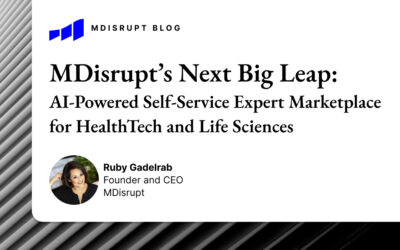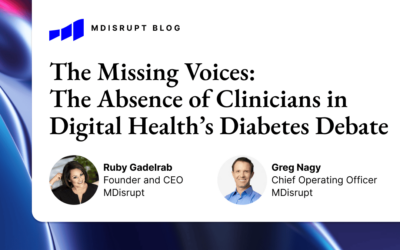October is Breast Cancer Awareness month. According to the CDC, in the United States, about 264,000 cases of breast cancer are diagnosed in women and about 2,400 in men, making it the second highest cause of cancer among women in the United States. In 2020, 2.3 million people were diagnosed with breast cancer around the world. However, when diagnosed early, the cancer has a 90% 5 year survival rate. Over the last decade, women’s health has seen a burst in innovation and funding, with a market size of around $51 billion USD. FemTech (digital health for female health needs) is tackling breast health, among other clinical areas, and I am seeing promising new breast cancer screening, diagnosis, and patient experience companies hit the market.
Tech Advances Screening and Diagnosis
The CDC recommends that women with an average risk profile start breast cancer screenings at the age of 40. But how does a person know if they have an average risk profile? Enter: CancerIQ. Their software provides customized screening recommendations based upon each individual’s genetics, family history, lifestyle, and comorbidities. I’m excited about this product because it improves how healthcare resources are allocated and works towards patients getting the right screening at the right time for them.
Fear of radiation and discomfort during mammograms are often cited as reasons why women delay breast cancer screenings. New ultrasound technology such as the iBreast Exam by UE Life Sciences (FDA 510K cleared) addresses both of those concerns. The handheld breast examination device syncs with a mobile phone and creates a digital image file from the exam that can be attached to a patient’s medical record. In addition to improving patient comfort, ultrasound tools like the iBreast Exam are beneficial for advancing health equity. Areas lacking hospitals with radiology services nearby can perform cancer screenings in a clinic and can send the scans to a radiologist for review. iSONO’s ATUSA wearable breast ultrasound scanner (FDA 510K cleared) also offers an alternative to mammography and creates 2D and 3D images of the breast tissue. The company is currently researching the use of AI to identify abnormal lesions via their software. While I think we will continue to need trained radiologists to review scans, AI could provide a second pair of (virtual) eyes to improve diagnosis.
Digital Patient Experience Tools Address Symptoms and Provide Support
While breast cancer can have a high survival rate, treatment and recovery are still harrowing experiences. Mobile apps and connected devices are making the journey easier for patients. The Belong Beating Cancer Together App has a 4.9/5 star rating on the Apple App Store with over 2,000 reviews. Patients love being able to find research studies, chat with oncologists and peers, and manage their care journey all in one place– from medications to appointment tracking. The overarching theme from the review comments is that Belong Beating Cancer Together provides them hope and community.
Breast cancer survivors continue to have side effects from treatment while in remission and a few wearables have come out to address them. Brilliantly was created to tackle the symptom of constant coldness that patients reported after having reconstructive breast surgery. The wearable slips into any bra for safe, flexible, natural-feeling warmth and the temperature is controlled by a phone app for discrete and easy adjustment throughout the day. Medications can also force women into menopause, and the Embr Wave 2 bracelet works as a “personal thermostat” to curb hot flashes. There is promising evidence that the Embr Wave 2 reduces hot flashes interfering with sleep.
We are just scratching the surface of how we can improve breast cancer screening, diagnosis, and treatment with digital health, and I am confident that with continued funding and research we will see more exciting innovations in the near future.

Katie D. McMillan, MPH is the CEO of Well Made Health, LLC
Katie D. McMillan, MPH is the CEO of Well Made Health, LLC and is actively researching FemTech and digital health evidence. She is currently collaborating with MDisrupt to identify clinically validated digital health products for women’s health.
At MDisrupt we believe that the most impactful health products should make it market quickly. We do this by uniting digital health companies with experts from the healthcare industry to help them accelerate their time to market responsibly.
Our expert consultants span the healthcare continuum and can assist with all stages of health product development: This includes regulatory, clinical studies and evidence generation, payor strategies, commercialization, and channel strategies. If you are building a health product, talk to us.



